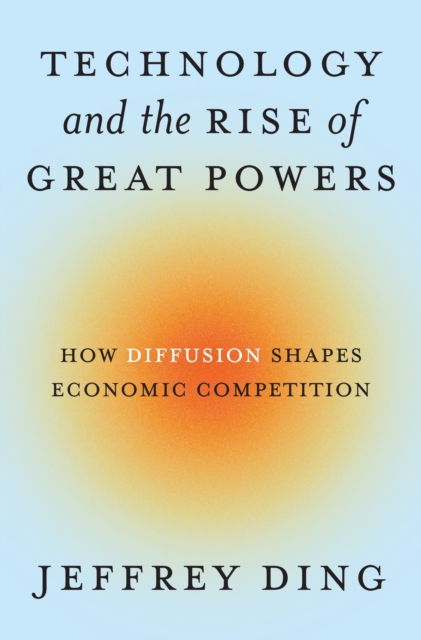Technology and the Rise of Great Powers: How Diffusion Shapes Economic Competition

Technology and the Rise of Great Powers: How Diffusion Shapes Economic Competition
A novel theory of how technological revolutions affect the rise and fall of great powers When scholars and policymakers consider how technological advances affect the rise and fall of great powers, they draw on theories that center the moment of innovation--the eureka moment that sparks astonishing technological feats. In this book, Jeffrey Ding offers a different explanation of how technological revolutions affect competition among great powers. Rather than focusing on which state first introduced major innovations, he investigates why some states were more successful than others at adapting and embracing new technologies at scale. Drawing on historical case studies of past industrial revolutions as well as statistical analysis, Ding develops a theory that emphasizes institutional adaptations oriented around diffusing technological advances throughout the entire economy. Examining Britain's rise to preeminence in the First Industrial Revolution, America and<
PRP: 247.59 Lei
Acesta este Prețul Recomandat de Producător. Prețul de vânzare al produsului este afișat mai jos.
198.07Lei
198.07Lei
247.59 LeiLivrare in 2-4 saptamani
Descrierea produsului
A novel theory of how technological revolutions affect the rise and fall of great powers When scholars and policymakers consider how technological advances affect the rise and fall of great powers, they draw on theories that center the moment of innovation--the eureka moment that sparks astonishing technological feats. In this book, Jeffrey Ding offers a different explanation of how technological revolutions affect competition among great powers. Rather than focusing on which state first introduced major innovations, he investigates why some states were more successful than others at adapting and embracing new technologies at scale. Drawing on historical case studies of past industrial revolutions as well as statistical analysis, Ding develops a theory that emphasizes institutional adaptations oriented around diffusing technological advances throughout the entire economy. Examining Britain's rise to preeminence in the First Industrial Revolution, America and<
Detaliile produsului










